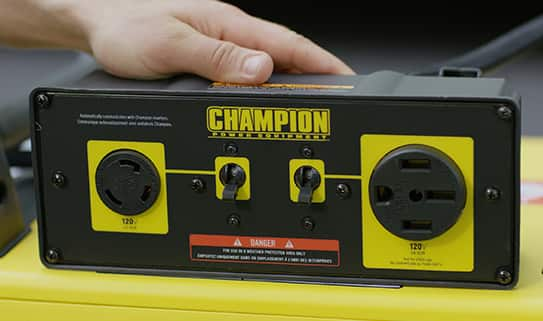Collect 25x Bonus CT Money®. That's 10% back in CT Money* on select MotoMaster tires. May 8-15 with Triangle Rewards®. Conditions apply.
Learn More.Triangle® Mastercard® $150 Bonus CT Money®††. New Cardmembers only. Conditions Apply. Ends May 31.
Learn MoreThis paragraph should be hidden..
How to choose a generator
A generator can provide convenient, portable power or be a reliable source of back-up power, depending on your needs. Find the one that’s right for you.


- TYPE
- POWER
- FEATURES
Home stand-by generators
These generators are permanently installed outside of a home to provide backup power. They run on natural gas or propane and are programmed to switch on automatically to restore power to a home’s entire electrical system during an outage.
Shop Now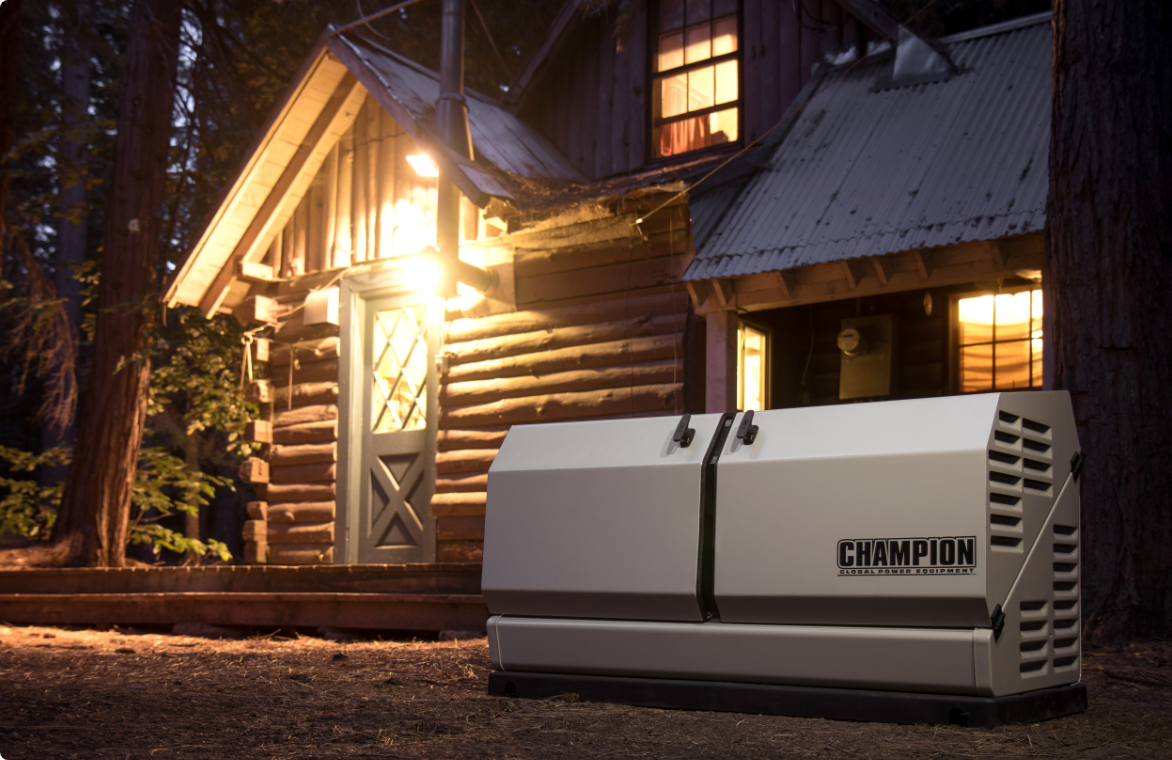
Portable gas generators
If you’re looking for a mobile power source to use in your workshop, during blackouts, at the cottage or on the jobsite, you’ll need a gas generator. These models require a fuel stabilizer if you are going to store it without use for more than a week.
Shop Now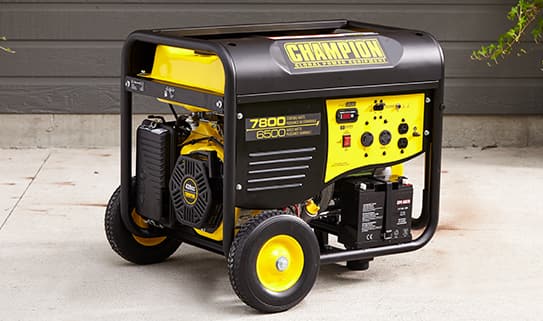
Dual-fuel generators
Dual-fuel generators can run on two different fuel sources. This gives you added flexibility to power your generator with either gas or propane.
Shop Now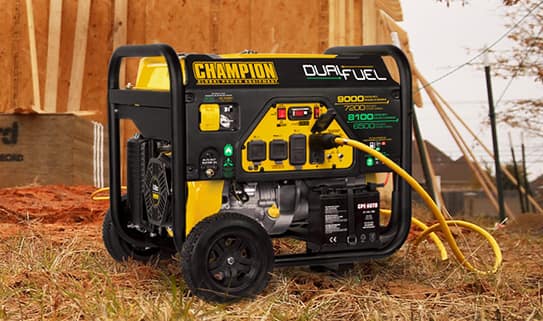
Inverter generators
If you need a power source for RV-ing, camping, tailgating or other outdoor activities, an inverter generator is ideal. They are lightweight, quiet and can power smaller appliances like lights or smart phones. Inverters also provide true sine wave to protect sensitive electronics such as laptops.
Shop Now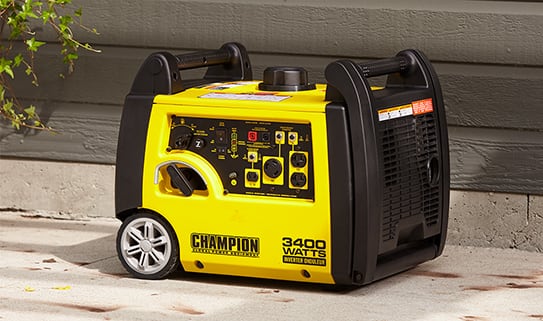
Portable power stations
Portable power stations are inverter generators powered by rechargeable lithium-ion batteries. They provide you with on-the-go power during outdoor adventures, power outages and on the jobsite. To recharge these units, simply plug them into a solar panel, an AC wall outlet or the DC port of your car.
Shop Now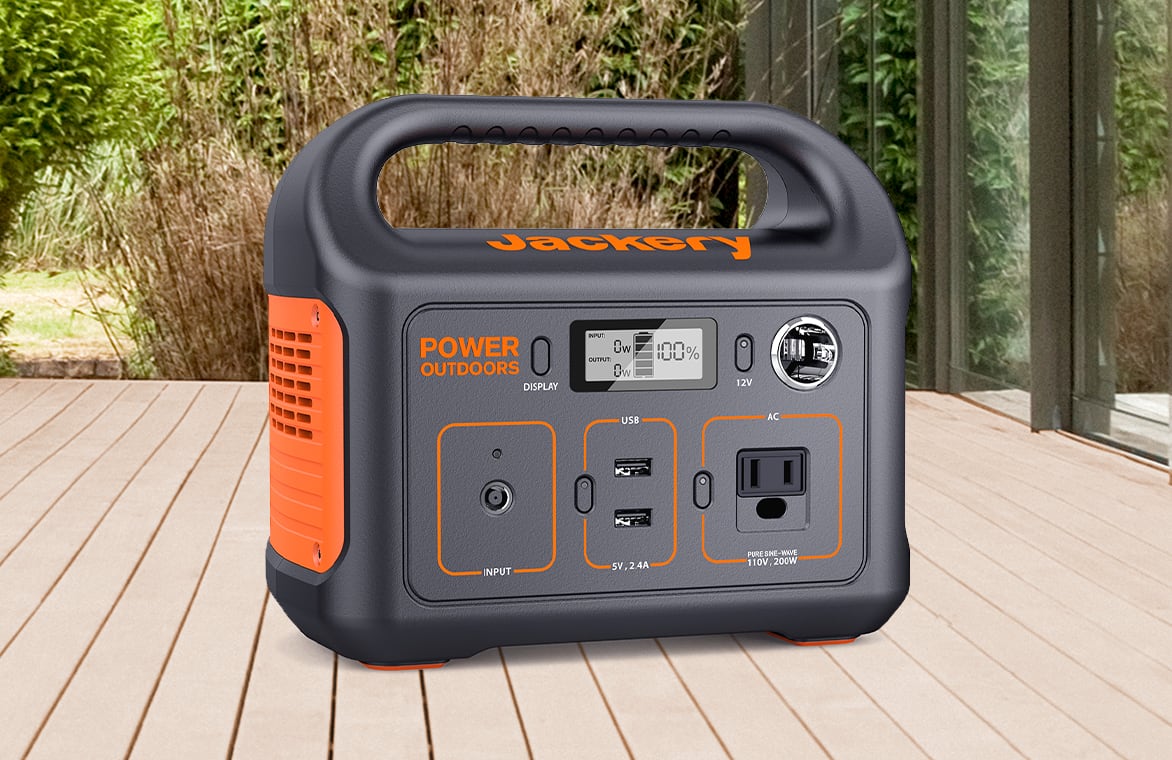
Starting watts, running watts & total wattage
To determine your power needs for a gas generator, add up the wattage of all the items you want to power at one time. Keep in mind many items require higher wattage, also called peak or starting watts, to power up and then lower running watts.
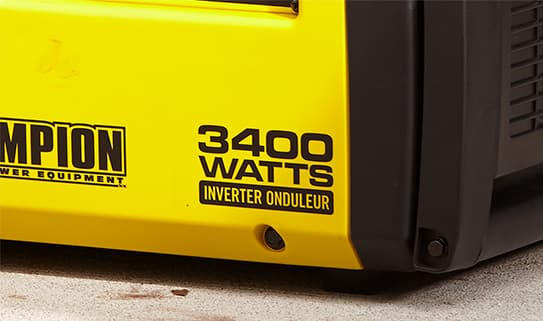
6000 watts or less
If you need a generator for light residential backup power during a power outage or to power small appliances like a toaster, a unit with 6,000 watts or less is sufficient.
Under 1,000W 1,000-3,499W 3,500-5,499W
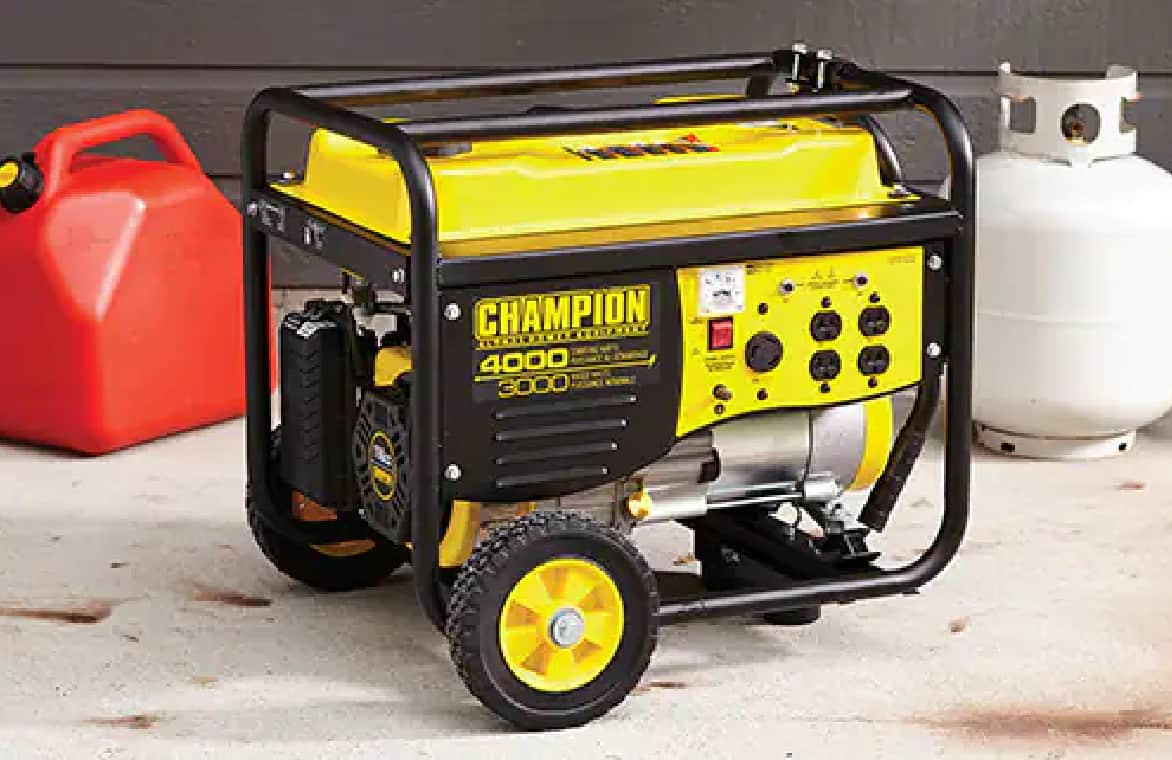
More than 6000 watts
For jobsite work, such as power tools, plus any extended emergency situations, a generator with more than 6,000 watts is needed.
5,500-7,999W 8,000-9,999W 1,0000W & Over
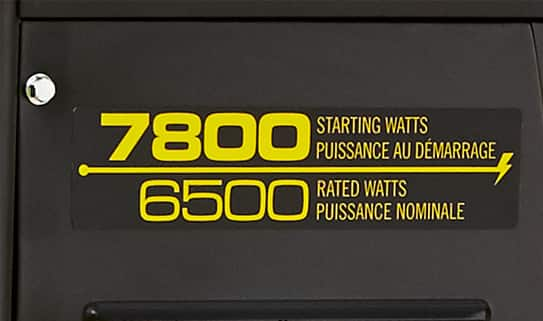
How many outlets do you need?
Make sure you choose a model that has sufficient outlets to plug in all the items you want to power.
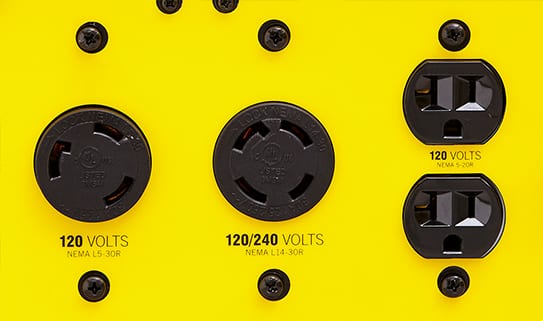
Remote start
A wireless remote start allows you to start the generator from as far away as 80 feet. You can even start it from inside your house, RV or cottage, so you don’t have to brave the elements.
Shop Now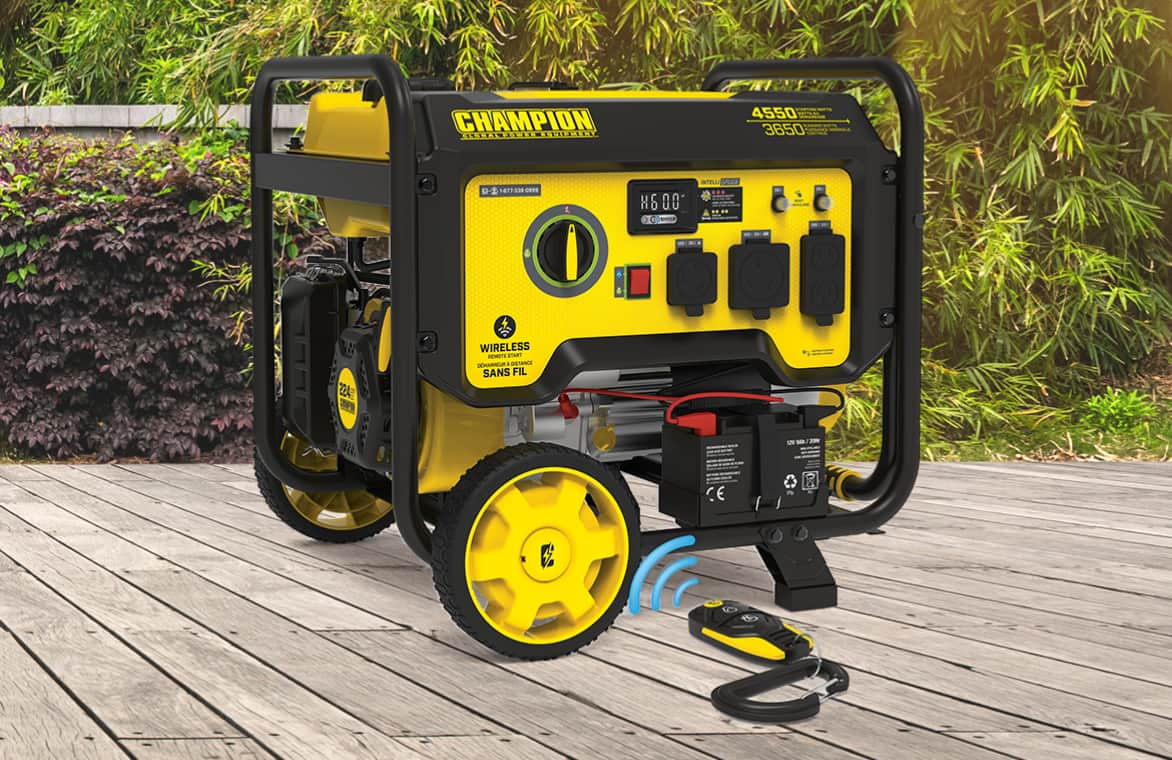
Cold start
Some models have cold start technology, which is a process that increases the amount of fuel in the carburetor allowing for an easier start in cold temperatures.
Shop Now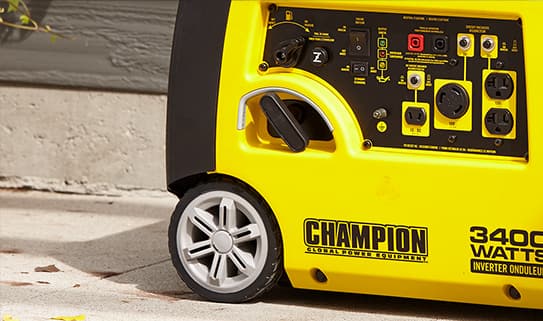
Electric start
An electric start allows you to easily start your generator with the push of a button, rather than pulling a recoil starter
Shop Now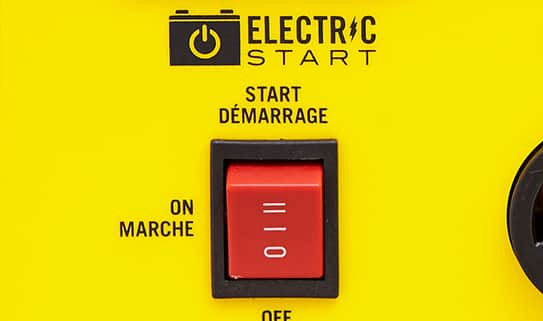
Fuel life meter
A fuel life meter on the display panel shows you how many hours of run time is remaining based on the power being used
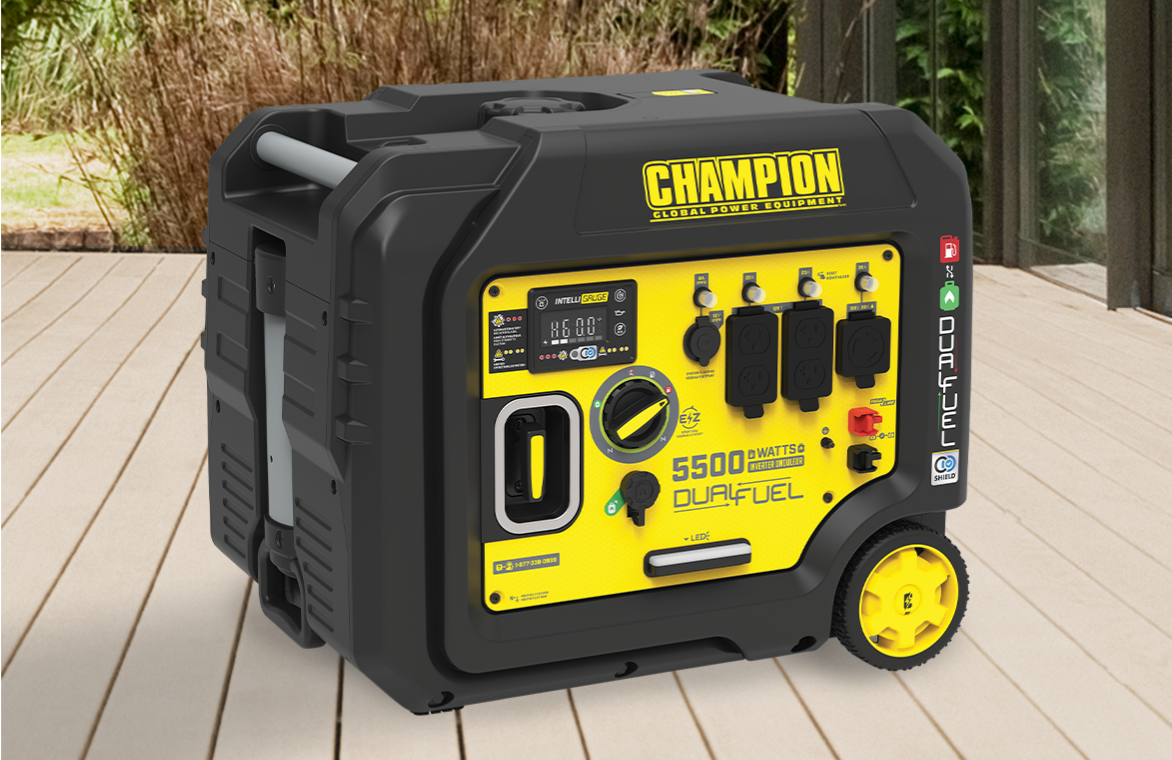
Parallel connection
A parallel connection feature on inverter generators allow you to connect two inverters with a separately purchased kit. This is a great way to increase the wattage without switching to noisy alternatives.
Shop Now